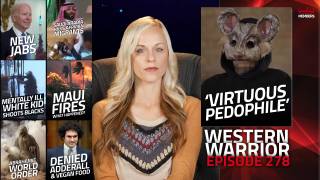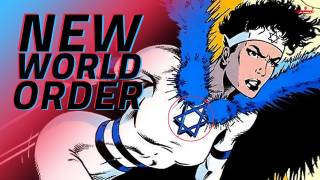Why Rockefeller's Death Doesn't Mean the End of 'New World Order' Doctrine
Billionaire David Rockefeller's death has prompted some observers to assume that the US establishment's globalist concept has lost some wind. However, geopolitical analyst Gilbert Mercier explained in an interview with Sputnik why it's too early to jump to conclusions.
The passing of David Rockefeller, the patriarch of the famous banking clan, has prompted a lively debate over the future of the Rockefeller family and the globalist agenda in general.
According to Professor Valentin Katasonov of the Moscow State Institute for International Relations (MGIMO), it is possible that the billionaire's death will sap the influential financial group's strength.
"David Rockefeller's departure from life… could potentially result in the weakening of the positions the financial group had enjoyed for decades," Katasonov assumed.
The Rockefellers' Global Network Still Up and Running
However, geopolitical analyst and Editor in Chief of News Junkie Post Gilbert Mercier believes that it is not as easy as it seems.
"Even though Rockefeller was a key figure, and in many regards one of the founding fathers of the globalist world order project, the speculation that his death is a major blow to the financial elite is a pie in the sky. The self-proclaimed Masters of the Universe of Wall Street are as arrogant as ever, all of them are young crocodiles ready to feast on the carcasses of the old ones," Mercier told Sputnik.
"Despite Rockefeller's passing, the giant Hydra of the globalist swamp is still thriving: one of the many heads was lost, a few will grow back to take its place. This notion that a body or a board matters more than an organ or an individual is, after all, part of the precept of the globalist doctrine which David Rockefeller helped structured in the early 1950s. Setting up networks, groups or councils of his elite peers was always the philosophy of Rockefeller, and it became the redoubtable strength of the one world order project," the geopolitical analyst explained.
Mercier called attention to the fact that under David Rockefeller as CEO, Chase Bank grew through a network of correspondent banks, including some in the former Soviet Union and in China in the early 1970s. It turned into a network of about 50,000 banks and is regarded as the largest financial consortium in the world.
"As a key player in the globalist order, Rockefeller was instrumental in setting up the Chase International Advisory Committee (IAC) in the early 1960s. He was the IAC's Chairman until 1999. The IAC was renamed the International Council after Chase's merger with JP Morgan, and by 2005 included 25 members of the global elite from 20 different countries," Mercier pointed out.
"Member of this very exclusive financial club included Henry Kissinger, Riley Bechtel, George Shultz, Gianni Agnelli, John Loudon (CEO of Shell), David Packard, Henry Ford II and current chairman Tony Blair," he noted.
Mercier remarked that David Rockefeller was also "the driving force" behind the creation of the Bilderberg group, where he served for decades as gate keeper, being the only member of the advisory board.
"It is through those various channels and group of people that David Rockefeller quietly but efficiently influenced not only US domestic and foreign policies but also world affairs," Mercier emphasized.
David Rockefeller and US Foreign Policy
Indeed, on March 22, WikiLeaks, an international non-profit organization that publishes secret information, provided a link to 945 documents concerning David Rockfeller from its archives.
945 documents from our archives on David Rockefeller. a central figure in U.S. power, who died this week aged 101 https://t.co/QZWdJIMcwf
— WikiLeaks (@wikileaks) March 22, 2017
The collection of documents shows that Rockefeller was deeply embedded in US foreign policy. The banker's "sphere of interest" included the Middle East, Africa, Asia, the Soviet space and Latin America.
For example, Rockefeller played a significant role in saving Shah Mohammad Reza Pahlavi, after the latter was toppled during the course of the Iranian revolution of 1979.
"At Henry Kissinger's request, David Rockefeller has now agreed to assist in locating alternative refuge for Shah and entourage… David Rockefeller would like to minimize knowledge of his own involvement in view of [his] interests in Iran," the cable written on March 23, 1979 read.
At the same time, David Rockefeller made efforts to build bridges with Saddam Hussein, then leader of Baathist Iraq, in January 1975.
Read the rest at: sputniknews.com






















